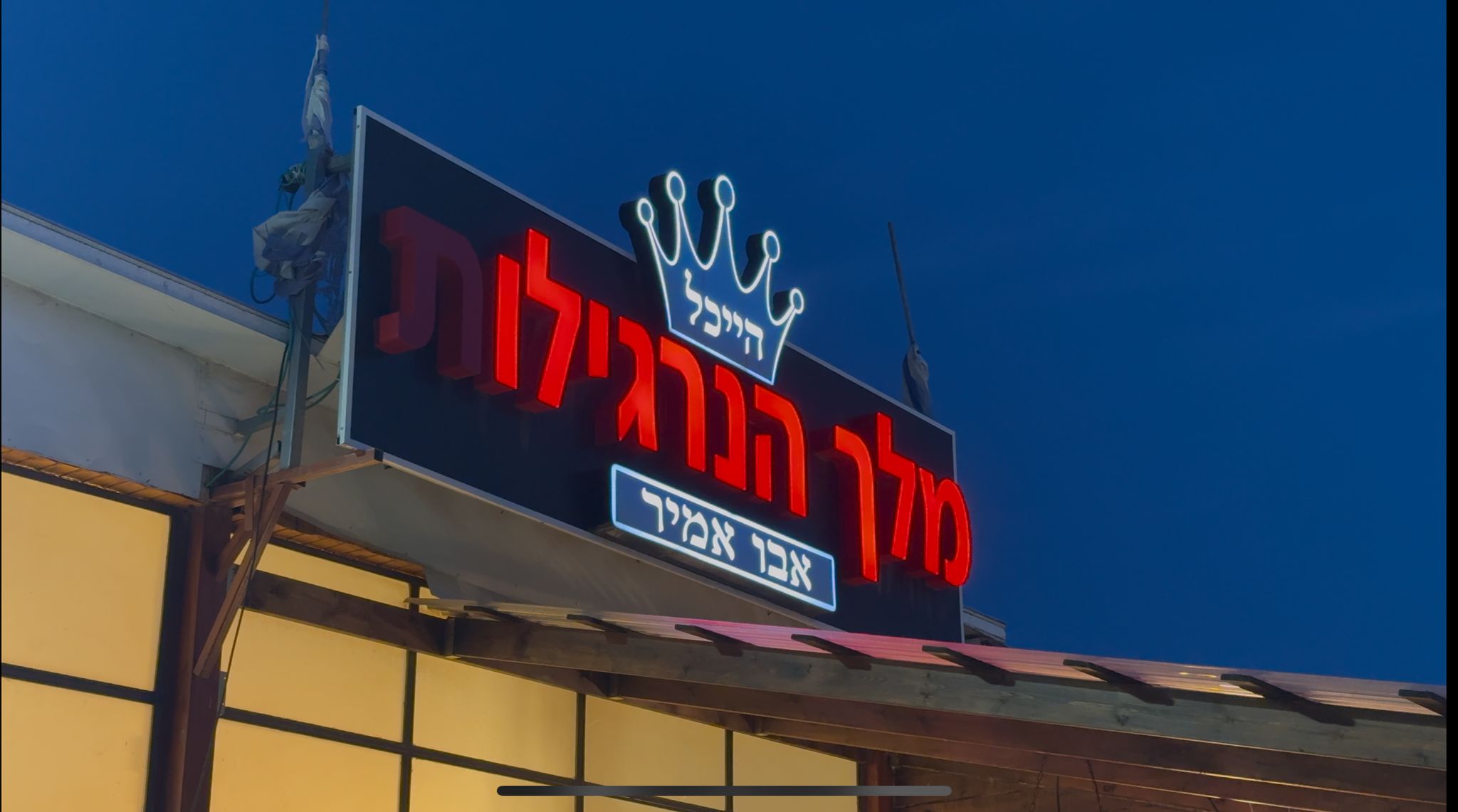Amid Extremism, a Narghile Café Unites Ultra-Orthodox and Arab Hosts
Between Jerusalem’s ultra-Orthodox neighborhoods of Mea Shearim and Kiryat Ye’arim, small acts of coexistence flourish
In the crowded alleys of Mea Shearim—one of the oldest Jewish neighborhoods in Jerusalem—life moves slowly but with purpose. Around 30,000 ultra-Orthodox Jews live here in less than a square mile. Many of them belong to strict religious groups that reject modern life and do not recognize the State of Israel. Some even support the Palestinian cause, flying flags from balconies in protest against Zionism. It is a place of strong opinions, closed traditions, and little outside influence.

Some Mea Shearim residents display Palestinian flags in protest against Zionism. (Giorgia Valente/The Media Line)
But even here, daily life brings contact with the “other.” Arab workers from East Jerusalem come and go—fixing things, making deliveries, running errands. People speak with each other daily and live side by side.
Just outside the city, another side of this story unfolds. In the hills west of Jerusalem, near the Arab villages of Ein Nakuba and Abu Ghosh, and the secular Jewish community of Neve Ilan, is the ultra-Orthodox town of Kiryat Ye’arim. Here, about 6,500 people live in quiet coexistence. There are no loud protests or political statements—just small moments of shared space.
And not far from Kiryat Ye’arim, in the village of Ein Nakuba, a small narghile café has become an unexpected meeting point between Arab hosts and their ultra-Orthodox neighbors. What started as a random encounter turned into something more.

The narghile café in Ein Nakuba, Israel. (Dario Sanchez/The Media Line)
A young ultra-Orthodox man named Yossi from Beit Shemesh was driving near the village when he got a flat tire. A local Arab man helped him and pointed him in the direction of a café. Yossi went, smoked a narghile, and felt comfortable. “I was the only ultra-Orthodox Jew there,” he said. “Now I come every day. I invited my friends. And now the place is full of us.”
Now, most of my clients are ultra-Orthodox Jews. And I serve only kosher products. … The Jewish customers also light the fire before I cook.
This holiday season, give to:
Truth and understanding
The Media Line's intrepid correspondents are in Israel, Gaza, Lebanon, Syria and Pakistan providing first-person reporting.
They all said they cover it.
We see it.
We report with just one agenda: the truth.
Please support TML's boots on the ground.Donate

The café owner, Abu Amir, remembers it clearly. “Yossi came in and smoked for the first time. Then, he brought a friend, and that’s how the connection with the Haredi [ultra-Orthodox] community began.”
“Now, most of my clients are ultra-Orthodox Jews,” says Abu Amir. “And I serve only kosher products, from food to beverages. The Jewish customers also light the fire before I cook.”
Eliyahu Orenstein, from Kiryat Ye’arim, agrees that the café became more than just a smoking spot. “It’s a place to relax,” he said. “I don’t eat there, because I’m careful about kashrut, but I go to enjoy the narghile and the atmosphere.”
We live near Arabs. … We respect each other. … That’s how it should be.
This kind of small coexistence is common in Kiryat Ye’arim. Aron, a young man from the community, said simply, “We live near Arabs. We don’t have a strong connection, but we respect each other. We share the same roads. That’s how it should be.”
Others, like Avraham Goldstein, have stronger views. “I’m not a Zionist,” he says. “But I’ll never support Palestinians over Zionist Jews. What people in Mea Shearim do—putting up Palestinian flags—that’s just to make a point. It’s not normal.” He adds that the relations between Arabs in Abu Ghosh, Zionist Jews in Neve Ilan, and the ultra-Orthodox Jews in Kiryat Ye’arim are good, unlike in the West Bank, “where people from different communities clash on a daily basis, and there are more extremists.”
“I can walk through Abu Ghosh in the middle of the night and nothing will happen to me, which isn’t the case in other parts of Israel,” he says.
The calm relationships in this area may not make headlines, but they tell a deeper story. “An Arab friend from Abu Ghosh told me he works with Jews and shared how positive the experience has been for him, especially compared to working within his own community,” said Orenstein. “The conditions and the pay are better, and there’s mutual respect.”
And at the narghile café, that respect is easy to see. Jews and Arabs sit side by side, smoking and chatting. Motti, from Jerusalem, has been coming for years. “I’ve tried other places, but this one is the best. It offers great quality at a fair price,” he said. “It’s become a habit.”
Dario Sanchez contributed to this report.

